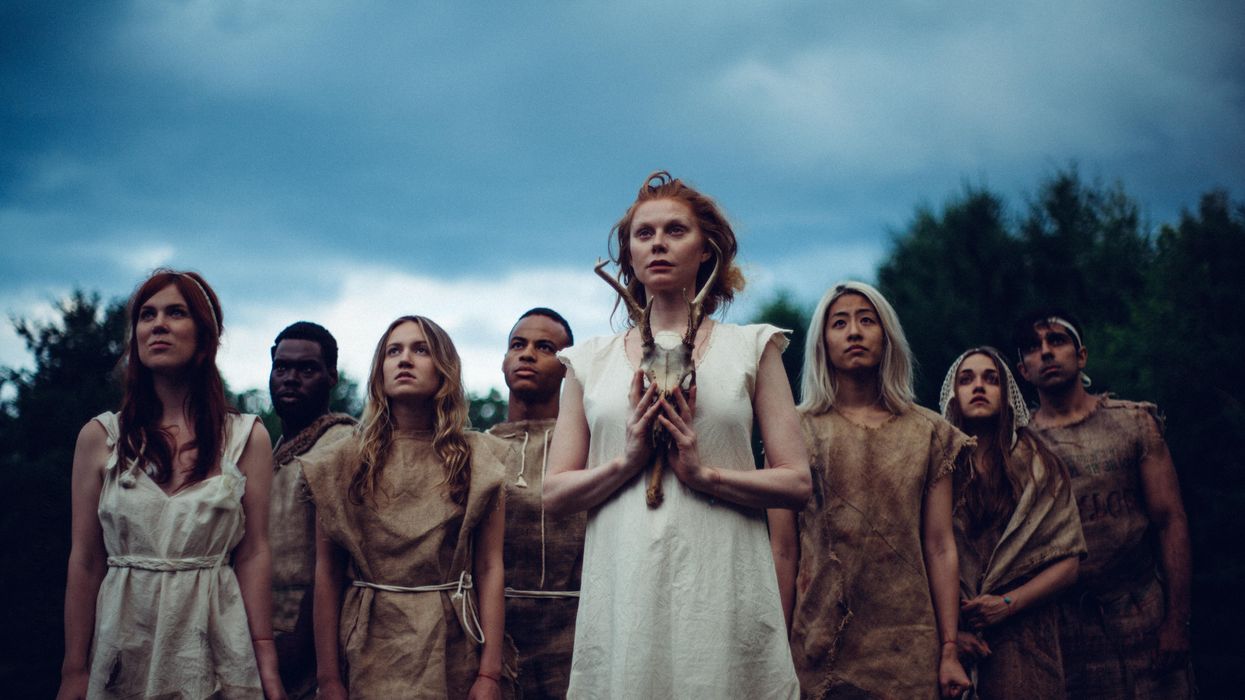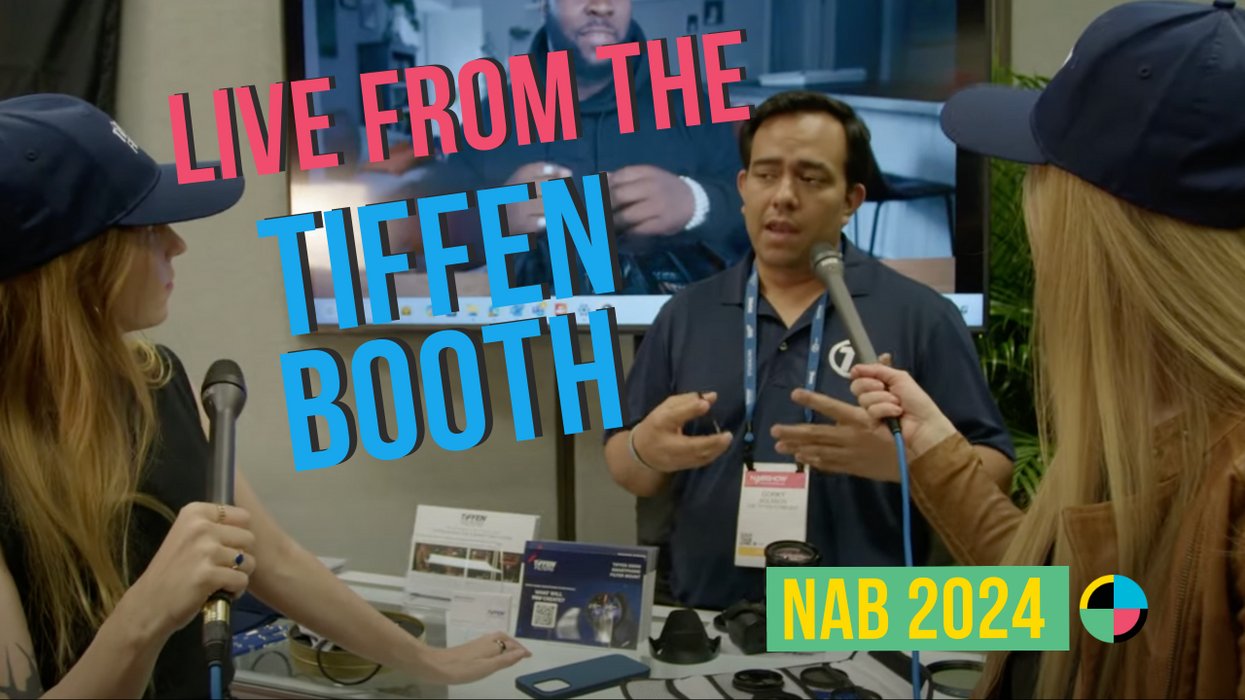6 Tips on Creating an Indie TV Series (and Getting It Picked Up)
"They are really hungry for fresh, new voices.”

It’s a good time to make a low-budget series because plain and simple, not everyone has made one yet. “If you have a specific voice, your shot of getting into a festival is higher than that of a short film in getting into a festival, because not everyone is doing it,” said Sonja O’Hara, creator of the Doomsdayseries. “I couldn’t believe my pilot, made for under $10,000, was getting meetings with HBO and AMC. They are really hungry for fresh, new voices.”
Sitting next to O’Hara at the SXSW session on navigating the new world of Indie TV, Dan Braun of Submarine concurred that it’s a Golden Age for television. “But just like in the Gold Rush: a lot of people are setting up mining camps where they didn’t strike gold.”
The panel, moderated by Randi Kleiner, founder of SeriesFest, addressed the path to producing and greenlighting episodic stories, while also providing advice for filmmakers on how to navigate this world in the hopes of striking gold. Below is a compilation of important takeaways.

1. Don’t shoot the whole thing just yet
According to Braun, Submarine gets approached by a lot of people and the safest bets for them is to get involved before a series is completely in the can. “People come in at a lot of different levels, from just the concept to a short reel. But it’s usually not fully finished. That is a riskier approach. For us, we see most people at the concept or trailer stage and a treatment.”
2. Or do shoot the whole pilot (and edit multiple versions so you can play festivals)
O’Hara shot the first hour of what would become an hour-long episodic drama, using it to get the rest of the series picked up. One crucial step for her with the finished hour-long drama was to play at film festivals. For that, she cut multiple lengths.
“I was careful to make a sexy sizzle trailer and put it on social media. Some one from SeriesFest asked me to submit. I also believe if you have an hour-long drama, not all of the festivals that do web and episodic will let you take up an hour-long slot. Because of this, I edited shorter versions, even a 12-minute cut, to play more fests. My editor hated me, but it worked.”
Here are some festivals mentioned by O’Hara and Braun as good places to apply:
- SeriesFest
- ITVFest
- Episodic Categories of Big Fests: Sundance, TIFF, SXSW, Tribeca, etc.
"We get a lot of pitches, and we respond to a.) if it’s our own personal taste or b). if it’s not our taste, but if it’s original, well thought out, and has the elements we can digest."
3. Put together materials for a great pitch
If you want to get your series off the ground, you’ll want to get the idea in front of a network or someone who can help you get in front of a network. That means you need to put together a thorough (and often visual) pitch. Panelists suggested looking up successful pitches, pitch bibles, or pilots and treatments online. Here are a few they recommended:
4. What a buyer looks for in a pitch
Braun sees a lot of pitches and has to decide what he will pick up to package or produce for a network. “We get a lot of pitches, and we respond to a.) if it’s our own personal taste or b). if it’s not our taste, but if it’s original, well thought out, and has the elements we can digest. If it's based on something and there are rights involved, and they don't have the rights, it may not be realistic. Do the research. For a strong treatment, we look for what buyers look for in doc or narrative," including the following:
- Have a strong character, know who the characters are
- Know how the characters function in the narrative
- Is it two hours, six hours, an ongoing series?
- Is there a bible (for narrative)?
- Is there an understanding of the series breaks, cliffhangers, endings, starts?
“It’s not that executives don’t have imagination, they just don’t use it in the room," concluded Braun. “Everything must be shown. Not much should be left to the imagination. “
Deal memos are to protect you, but also to bear in mind and attempt to account for all the hard work of your crew who may not be invited by a network to continue with you on the series.
5. Before you go in to pitch, hire an entertainment lawyer
Because if you don’t, you may cost yourself more money down the line. Namely, if you get a potential offer, you may lose it if your legal ducks and chain of title are not in line. That’s what happened to O’Hara, who says having a lawyer could have saved her a lot of money for what happened to her later on. Also mentioned, reversion clauses and deal memos, which a lawyer could help you out with.
Reversion Clause
“When you are pitching, if they don’t move forward, a reversion clause makes sure you retain those rights after a certain amount of months have passed,” said O’Hara. “Hire a good entertainment lawyer to protect yourself before you hand over your baby and never see it again.”
Deal Memos
These are to protect you, but also to bear in mind and attempt to account for all the hard work of your crew who may not be invited by a network to continue with you on the series.
“A simple deal memo says, I am the only person who is allowed to negotiate or say 'yes' or 'no' in the deal,” said O’Hara, who additionally suggested having something in writing to at least suggest the crew you’d like to bring with you should the series get picked up—very rarely will you get to bring your producers along to a network.
“You can try to add something about getting the first offer to be DP, but it might not be worth much," O'Hara explained, "but if you like your DP and don’t get your DP, you can even give them a percentage. With producers, they are valuable assets but a network may not want them, so do a clause to at least suggest them to network. At the very least. honor their hard work”
"People say they don’t accept unsolicited emails, but a lot of people wrote back and set up meetings with me.”
6. Don't underestimate the power of an email
If you’ve got your idea, have a trailer or pilot or concept, and have put together a great pitch, it’s time to go for it. And that can mean simply sending emails! O’Hara started blindly emailing people who she thought might be interested in her series, and she didn’t just spam every possible acquisitions person at every possible place. She focused on the places that would like her brand of “weird artsy shit.”
She also thought of a good subject line. “I did grassroots, I didn’t know the rules. I just started reaching out to people, to all the places doing stuff that I loved. People say they don’t accept unsolicited emails, but a lot of people wrote back and set up meetings with me.”
See all of our coverage of SXSW 2018.
Featured header image comes from the series "Doomsday" by creator Sonja O'Hara.












